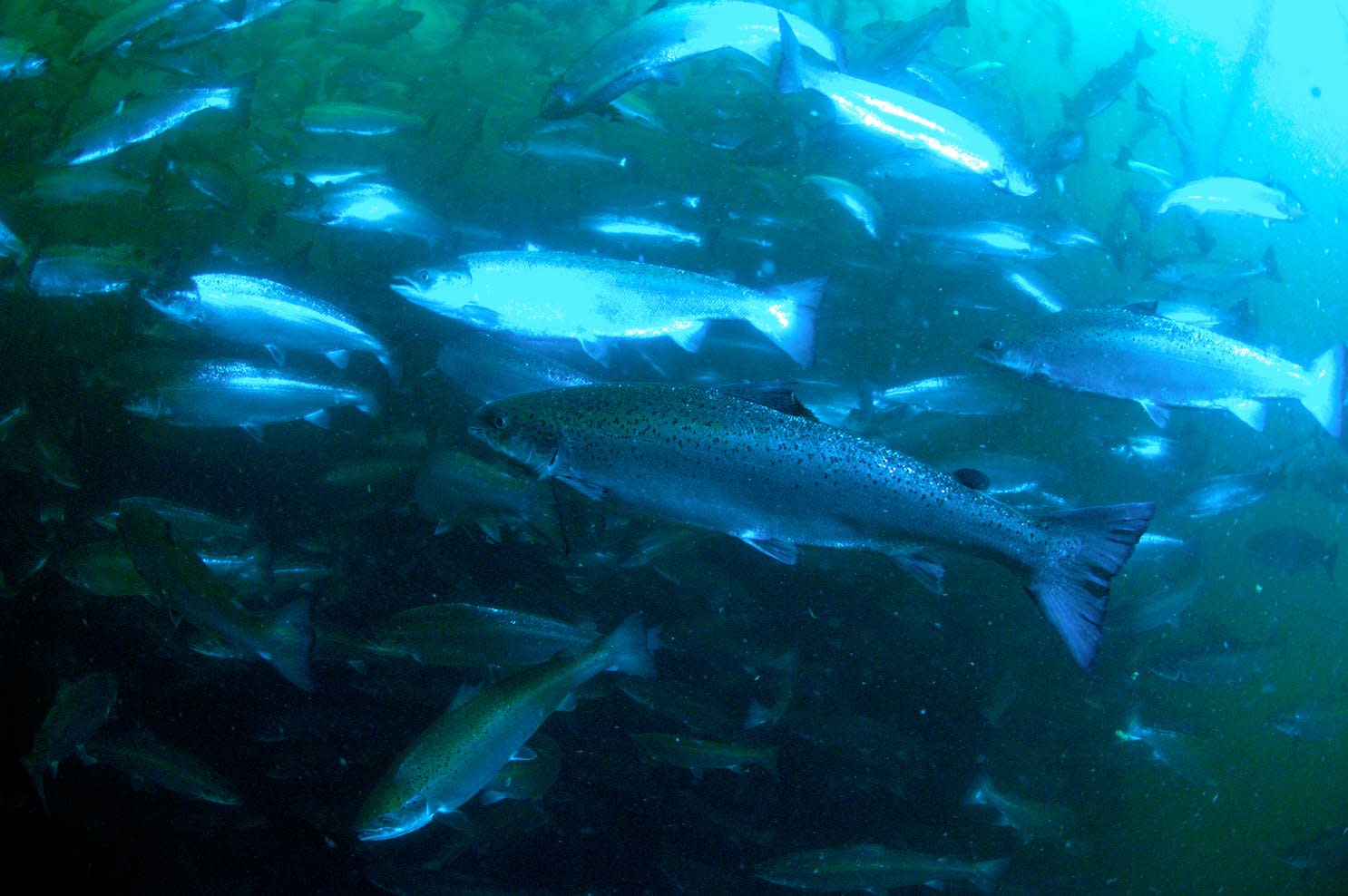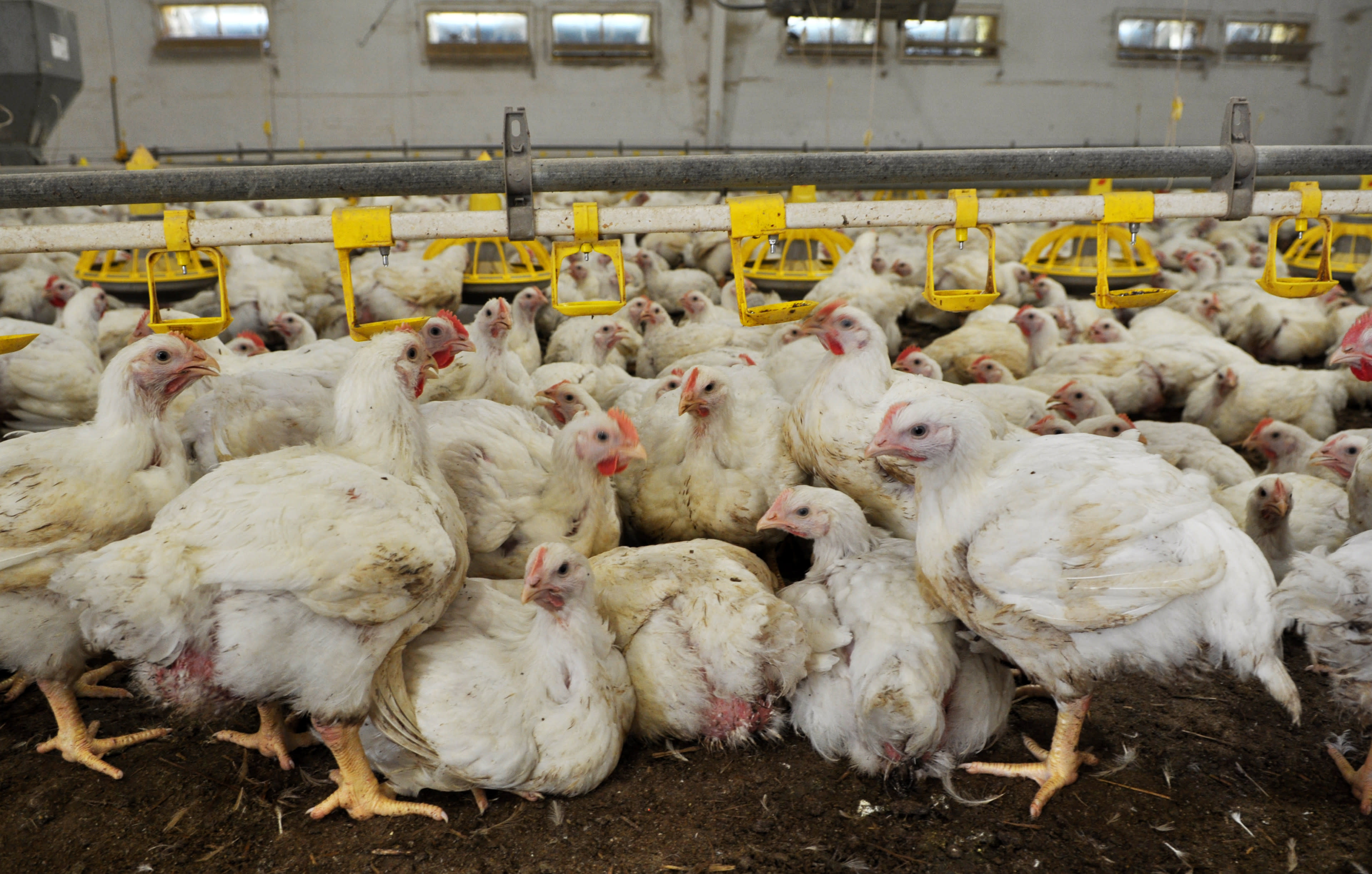




Ever wondered what life would be like if you were a fish? Sadly, idyllic expanses of ocean are far from reality for farmed fishes.

Ever wondered what life would be like if you were a fish? Exploring hidden corners of the deep blue ocean, the freedom to swim for miles across the vast expanse of sea, encountering all manner of weird and wonderful underwater creatures along your way.
It’s something most of us can only dream of and I am fascinated by this world that exists beneath the surface, bursting with unfamiliar life. Watching Finding Nemo or Blue Planet, you’d be hard pressed not to conclude that life as a fish would be pretty cool.
But sadly, this is not the experience of many fishes. And when I say many, I refer to 115 million individuals in the UK alone. That’s how many fishes are raised and killed every year to end up on our dinner plates and for them, life is quite a different story.
In the UK, the predominantly farmed species are the rainbow trout (mostly farmed in England) and the Atlantic salmon, of which Scotland is Europe's second largest producer. Rainbow trout are named after the distinct pinky-reddish colour of their lateral line, the depression which runs across the length of their body that detects movement, pressure and vibration (it’s because of this line that fishes can swim next to each other in the dark without ever bumping into one another!). This pinky metallic glow is mesmerising.
Atlantic salmon are awesome too - in the wild, they have such a strong urge to breed at their place of birth that they will travel thousands of miles from out of sea back to their river of origin even though they haven’t been there for over two years. They use the Earth’s electromagnetic field and a heightened sense of smell to help them find their way. What a superpower!
Why 'fishes'?
You may have noticed that here at THL UK, we use the word ‘fishes’ as the plural for fish. This is influenced by Jonathan Balcombe, the author of the best-selling book ‘What a Fish Knows’. Balcombe explains that fishes are the most exploited category of vertebrate animals on earth and by using the plural ‘fish’, we lump them together ‘like rows of insentient corn’. But we know that fishes are intelligent, feeling individuals that deserve to be recognised as so. That’s why we choose to set an example and recognise this through our use of language, emphasising their individuality through the term ‘fishes’.
Sadly, both trout and salmon are heavily exploited by the aquaculture industry and are exposed to numerous welfare problems. Despite plentiful evidence from the scientific community confirming fish sentience and their capacity to feel pain, fishes in farms across the country are suffering at the hands of cruel intensive systems. Let’s take a look at the reality of life for a farmed fish here in the UK.
Trapped and confined
If you’re a salmon living in Scotland, you’re likely to be kept in a sea cage. These are huge nets, attached to the ocean floor and floating in the ocean. You can see these if you fly over Scotland or towards Greece as large circular structures just off the coast. Hundreds of thousands of individual salmon are cramped together inside these cages, unable to swim away and explore their environment as a fish would naturally long to do. They are often kept in such close confinement that injuries are rife, as they get caught in the netting and damage one another’s fins and skin by being forced together. Salmon, unless shoaling, do not spend time in close proximity to other fishes and therefore this experience of constantly being surrounded by thousands of others is stressful.
The situation is similar for trout living in intensive pond systems. Severe overcrowding, shown in this recent investigation by Viva!, in the ponds worsens the quality of the water which depletes oxygen. This means that the trout struggle to breathe, much like if we were trapped in a small room with hundreds of others all breathing the same air. This alongside a build up of waste food and excrement makes for a miserable experience for trout, far removed from their natural habitat of crystal clear rivers and lakes.
Infested and distressed
Much like land animals in factory farms, fishes are prone to a range of diseases and infections as a result of the conditions they are kept in. As a Scottish salmon, you are likely to be plagued by sea lice throughout your life. These are parasites that love to latch on to the bodies of fishes and are both irritating and painful. In the wild, lice are kept under control as the space between fishes means they don’t spread so easily and any lice that do occur are eaten off their bodies by smaller fishes as a tasty snack. However, sea lice run rampant on fish farms as they travel from one salmon to another and multiply fast.
One of the ways farmers treat the problem is through a method called thermolicing, which sees salmons pumped through what is essentially a hot washing machine at great speed. This is incredibly distressing for a salmon and numerous lives are lost through this process.
Did you know?
Wrasse, otherwise known as cleaner fishes, are the car-washing fish of the ocean. These tiny little fishes will clean fishes many times their size and those that would otherwise eat them if not for this symbiotic relationship. They are known to have regular clients that visit time and again for a service. Sadly, many wrasse are kept in cages on salmon farms as an alternative to thermolicing and are seen as disposable. In Norway alone, the world’s largest salmon producing nation, around 50 million cleaner wrasse die every year.
A painful death
Sadly, the life of a farmed fish usually ends under stressful and painful conditions as the slaughter legislation for fishes in the UK lacks detail and clarity. For both a rainbow trout and an Atlantic salmon raised on an intensive farm, end of life will often mean receiving an electrical shock that is intended to render the fish unconscious before they are killed, often by cutting the gills. However, even those fishes that are stunned are at risk - poor equipment, incorrect stunning parameters and improper use means that many fishes will not be truly unconscious at the time of death, as evidenced in this harrowing investigation released by Animal Equality earlier this month.
Until now, the fish farming industry has relied on participation in voluntary certification schemes to promote good animal welfare standards but it is clear that this is not enough. Here at The Humane League UK, we are campaigning to ensure that salmon, trout and all other farmed fishes are clearly protected by the law at the time of slaughter. The commitment to protecting animals from abuse should not be voluntary or based on unclear legislation.
You can find out more about what THL UK is doing for farmed fishes here. One of the best ways to help end the abuse of fishes is to leave fish off your plate. And, here are some tasty plant-based fish alternatives!
Want to make a difference for animals? Join thousands of others and start by signing the petition below, it'll only take a moment.

 Maddy Dawe
Maddy Dawe







